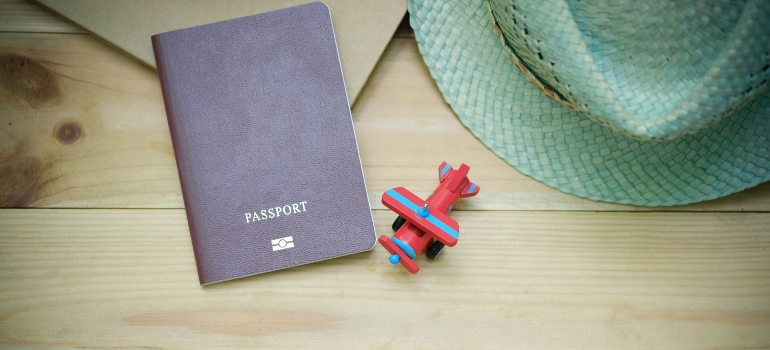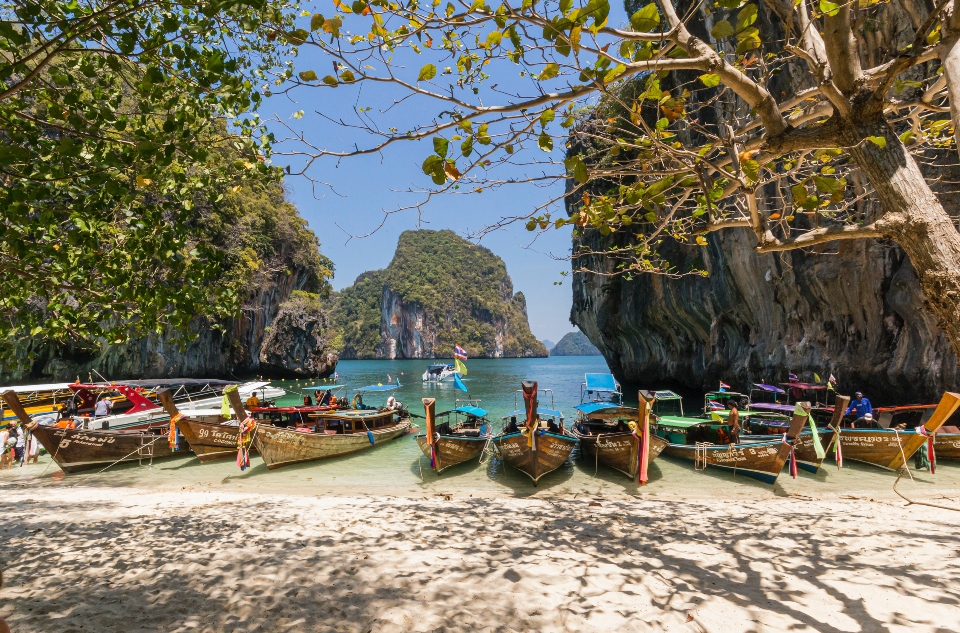Are you ready to unlock a tropical paradise and embark on a life-changing adventure? Welcome to Thailand – a land of vibrant colors, rich traditions, and breathtaking landscapes that have captivated expats from around the world. But amidst the allure, you may find yourself overwhelmed by the complexities of moving to Thailand from US. Fear not! This ultimate guide, brought to you by Verified Movers, is tailored to provide you with expert advice and essential information to make your transition to Thailand smooth and seamless. From navigating visa processes and finding the perfect home to understanding the local customs, we’ve got you covered.
The Charm of Thailand
Thailand boasts a rich heritage, vibrant traditions, and a diverse culture, making it an utterly captivating destination that leaves travelers and expats alike in awe. Steeped in ancient history and Buddhist customs, the country’s stunning temples, such as the Grand Palace and Wat Pho in Bangkok, and Wat Phra Singh in Chiang Mai, showcase intricate architecture and serve as spiritual havens.

Moreover, traditional Thai art forms, like classical dance and Muay Thai (Thai boxing), are meticulously preserved and celebrated, offering visitors an enthralling glimpse into the nation’s artistic heritage. The renowned floating markets, where vendors skillfully peddle their wares from boats along winding canals, epitomize a timeless tradition that continues to flourish. Do note that you may want to consider auto moving if you want to explore everything the country has to offer in your own time.
From the vibrant capital city of Bangkok, with its bustling street markets, electrifying nightlife, and world-class shopping, to the serene and nature-filled landscapes of Chiang Mai and Chiang Rai in the north, Thailand caters to various interests. Whether exploring bustling markets or venturing into remote villages, visitors will undoubtedly find themselves embraced by the warmth and welcoming attitude of the Thai people, leaving a lasting and heartwarming impression that resonates with people from all walks of life.
Careful Planning Before Moving to Thailand From US
Careful planning and organization are fundamental when you plan a move to Thailand from US. Setting clear objectives and establishing a timeline with realistic deadlines for long distance moving helps stay on track. It is crucial to budget and thoroughly research living conditions, culture, and lifestyle in Thailand to make informed decisions.
Regarding visa requirements, expats must understand the different types of visas available and gather the necessary documents, such as passports, educational certificates, and proof of funds. Familiarizing themselves with the visa application process ensures a smooth transition.

The process of obtaining a visa to move from the US to Thailand involves several steps and considerations.
General overview of the visa process
- Determine the visa type: The first step is to determine the appropriate visa type for your purpose of stay in Thailand. Common visa types for expats include tourist visas, work visas, retirement visas, and marriage visas.
- Research visa requirements: Once you have identified the visa type, research the specific requirements for that visa. Each visa has its own set of criteria, supporting documents, and application procedures.
- Gather required documents: Collect all the necessary documents as per the visa requirements of moving to Thailand from US. This may include your passport, passport-sized photos, proof of accommodation in Thailand, financial statements, employment letters (for work visas), marriage certificates (for marriage visas), and other relevant paperwork.
- Visa application: Submit your visa application to the Royal Thai Embassy or Consulate in the United States. You can apply in person or by mail, depending on the location of the Thai diplomatic mission.
- Wait for processing: Visa processing times may vary depending on the visa type and the volume of applications.
- Attend an Interview (if required): Some visa types, like work visas, may require an interview as part of the application process. Be prepared to answer questions related to your purpose of staying in Thailand.
- Visa approval and issuance: If your application is approved, you will receive your visa, either stamped in your passport or as a separate visa sticker, depending on the type of visa.
- Enter Thailand: Once you have your visa, you can travel to Thailand within the validity period of the visa. Make sure to arrive before the visa’s expiration date.
- Visa extension (if applicable): If you plan to stay in Thailand for an extended period, some visa types may be eligible for extensions.
Other considerations
Healthcare considerations are vital, and expats should research Thailand’s healthcare system and available medical facilities in their chosen area. Securing suitable health insurance that covers medical emergencies and hospitalization is essential. Managing finances requires identifying reputable banks in Thailand and opening a bank account. Comparing currency exchange rates and fees is vital for international money transfers. A financial plan should be in place to handle expenses, taxes, and investments while living in Thailand.

Learning the basics of the Thai language is beneficial for cultural integration and daily communication. It shows respect for the local culture and helps expats connect with locals. Fluency in Thai may also open up additional job opportunities and improve workplace communication.
Cost of Living and Legal System
Thailand’s cost of living offers a more affordable lifestyle compared to the US. It is an enticing destination for expats seeking a balanced budget. When breaking down specifics:
- Housing: A one-bedroom apartment in Bangkok’s city center might cost around $600 to $1,000 per month, while in less urban areas, it can dip as low as $200 to $400.
- Food: A local meal can be as cheap as $1.50 to $3.00, whereas a three-course meal at a mid-range restaurant might be between $15 to $30.
- Transport: A monthly pass for public transportation in Bangkok sits at around $30, and a liter of gasoline is approximately $0.90.
- Healthcare: A doctor’s visit might cost about $20 to $40, depending on the facility and nature of the visit.
Grounded in a civil law framework, Thailand’s legal system incorporates local customs and Buddhist elements. For expatriates, certain legal nuances demand attention. Acquiring a work permit is essential for those wishing to earn in the country. Also, the intricacies of property ownership for foreigners necessitate in-depth research and perhaps legal consultation before any investment.
Welcome to Thailand!
Thailand offers an enchanting adventure for those moving to Thailand from US. After unpacking and settling in after a long distance move, embrace the rich culture, welcoming people, and lower cost of living. Plan carefully, seek legal advice when needed, and enjoy this tropical paradise. Welcome to the Land of Smiles!




